AI
Engineering
Productivity
AI Engineering Productivity: Transforming Software Development
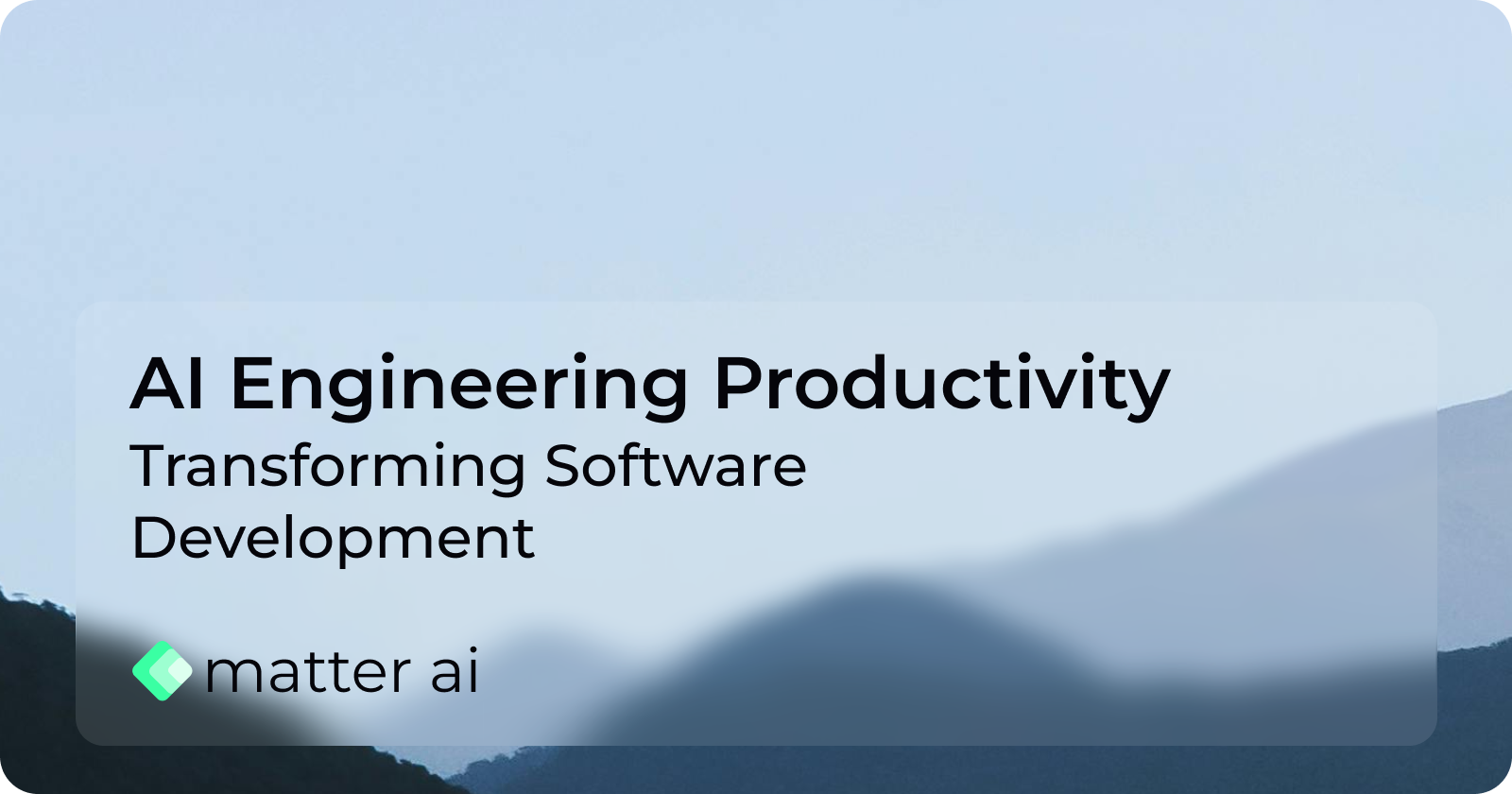
The software engineering landscape is experiencing a seismic shift. Artificial intelligence isn't just another tool in the developer's toolkit—it's fundamentally changing how we approach problem-solving, code creation, and system design. From automating mundane tasks to augmenting complex decision-making, AI is unlocking unprecedented levels of engineering productivity.
The Productivity Revolution in Numbers
Recent studies show that developers using AI-powered coding assistants complete tasks 55% faster on average, with some specific workflows seeing improvements of up to 80%. But the real story isn't just about speed—it's about the fundamental transformation of the engineering workflow itself.
Core Areas of AI Impact
1. Code Generation and Completion
Intelligent Autocomplete: Modern AI assistants like GitHub Copilot, Tabnine, and CodeT5 have evolved far beyond simple syntax completion. They understand context, design patterns, and can generate entire functions based on natural language descriptions.
Template and Boilerplate Automation: AI excels at generating repetitive code structures, API integrations, and standard implementations, allowing engineers to focus on unique business logic rather than reinventing common patterns.
2. Code Review and Quality Assurance
Automated Code Review: AI-powered tools can identify potential bugs, security vulnerabilities, and performance issues before human reviewers even see the code. Tools like DeepCode (now part of Snyk) and Amazon CodeWhisperer are setting new standards for automated quality checks.
Smart Testing: AI can generate comprehensive test cases, including edge cases that human developers might miss. It can also predict which parts of the codebase are most likely to break based on change patterns.
3. Documentation and Knowledge Management
Auto-Documentation: AI can generate meaningful documentation from code comments, function signatures, and usage patterns, keeping documentation current with minimal manual effort.
Intelligent Search: Vector-based search through codebases and documentation allows developers to find relevant information using natural language queries, dramatically reducing time spent hunting for examples or solutions.
4. System Design and Architecture
Architecture Recommendations: AI can analyze requirements and suggest optimal system architectures, considering factors like scalability, performance, and maintainability.
Dependency Management: Intelligent analysis of package dependencies helps identify potential conflicts, security vulnerabilities, and opportunities for optimization.
Real-World Implementation Strategies
Starting Small: The Incremental Approach
The most successful AI adoptions in engineering teams follow a gradual implementation pattern:
Phase 1: Individual Productivity Tools
- Introduce coding assistants for day-to-day development
- Implement AI-powered code formatting and linting
- Use natural language search for internal documentation
Phase 2: Team-Level Integration
- Automated code review integration in CI/CD pipelines
- AI-generated test coverage analysis
- Intelligent bug triage and assignment
Phase 3: Organizational Scale
- Cross-project code similarity analysis
- Predictive maintenance for legacy systems
- AI-driven technical debt identification and prioritization
Measuring Success
Key metrics for AI-enhanced engineering productivity include:
- Time to First Commit: How quickly new features reach initial implementation
- Review Cycle Time: Reduction in back-and-forth during code reviews
- Bug Detection Rate: Percentage of issues caught before production
- Developer Satisfaction: Self-reported improvements in work quality and job satisfaction
Navigating the Challenges
Security and Privacy Concerns
Code Confidentiality: Many AI tools require sending code to external services, raising concerns about intellectual property protection. On-premises or private cloud solutions are becoming essential for sensitive projects.
Generated Code Vulnerabilities: AI-generated code can contain security flaws or outdated patterns. Teams need robust security scanning and human oversight processes.
Technical Debt and Dependency Risks
Over-Reliance: Teams risk becoming dependent on AI tools without understanding underlying principles. Maintaining fundamental engineering skills remains crucial.
Quality Control: AI-generated code may lack the nuanced understanding of business context that human developers provide. Establishing clear review standards is essential.
Skills Evolution
Rather than replacing developers, AI is reshaping the skill sets that matter most:
Rising in Importance:
- Prompt engineering and AI tool mastery
- System thinking and architecture design
- Complex problem decomposition
- Human-AI collaboration techniques
Still Critical:
- Debugging and troubleshooting
- Performance optimization
- Security-first design thinking
- Domain expertise and business logic understanding
The Future of AI-Enhanced Engineering
Emerging Trends
Conversational Development: Natural language interfaces for code generation are becoming more sophisticated, allowing developers to describe complex features in plain English and receive working implementations.
Predictive Development: AI systems that can anticipate future needs based on current development patterns, suggesting optimizations and architectural improvements before problems arise.
Autonomous Testing: Self-healing test suites that adapt to code changes and generate new test cases automatically.
Infrastructure Evolution
AI-First Development Environments: IDEs and development platforms are being rebuilt from the ground up with AI integration as a core feature rather than an add-on.
Intelligent DevOps: Deployment pipelines that can self-optimize based on performance data and automatically suggest infrastructure improvements.
Practical Recommendations for Engineering Teams
Getting Started Today
-
Experiment with Coding Assistants: Start with GitHub Copilot or similar tools for individual developers to understand the impact on daily workflows.
-
Implement Automated Code Analysis: Integrate AI-powered security scanning and code quality tools into your CI/CD pipeline.
-
Enhance Documentation Workflows: Use AI to generate and maintain API documentation, reducing the burden on developers.
-
Establish AI Governance: Create guidelines for AI tool usage, including security review processes and quality standards.
Building AI Literacy
Team Training: Invest in training programs that help developers understand how to effectively collaborate with AI tools.
Experimentation Culture: Encourage teams to experiment with new AI tools and share learnings across the organization.
Continuous Learning: The AI landscape evolves rapidly. Establish processes for staying current with new tools and techniques.
Final thoughts: Embracing the AI-Augmented Future
The integration of AI into engineering workflows isn't just about doing the same things faster—it's about fundamentally reimagining what's possible in software development. Teams that embrace AI thoughtfully, with proper governance and a focus on enhancing rather than replacing human creativity, are seeing dramatic improvements in both productivity and job satisfaction.
The key to success lies not in adopting every new AI tool, but in strategically implementing AI solutions that address your team's specific pain points while maintaining the human insight and creativity that drives innovation.
As we look ahead, the engineers who thrive will be those who learn to dance with AI—using it to amplify their capabilities while maintaining the critical thinking and domain expertise that no algorithm can replace. The future of engineering productivity isn't just artificial or just human—it's the powerful combination of both.
Learn more on how MatterAI helps improve code quality across multiple languages in Pull Requests: https://docs.matterai.so/product/code-quality
Are you looking for a way to improve your code review process? Learn more on how MatterAI helps team to solve code review challenges with AI: https://matterai.so
Share this Article:
More Articles
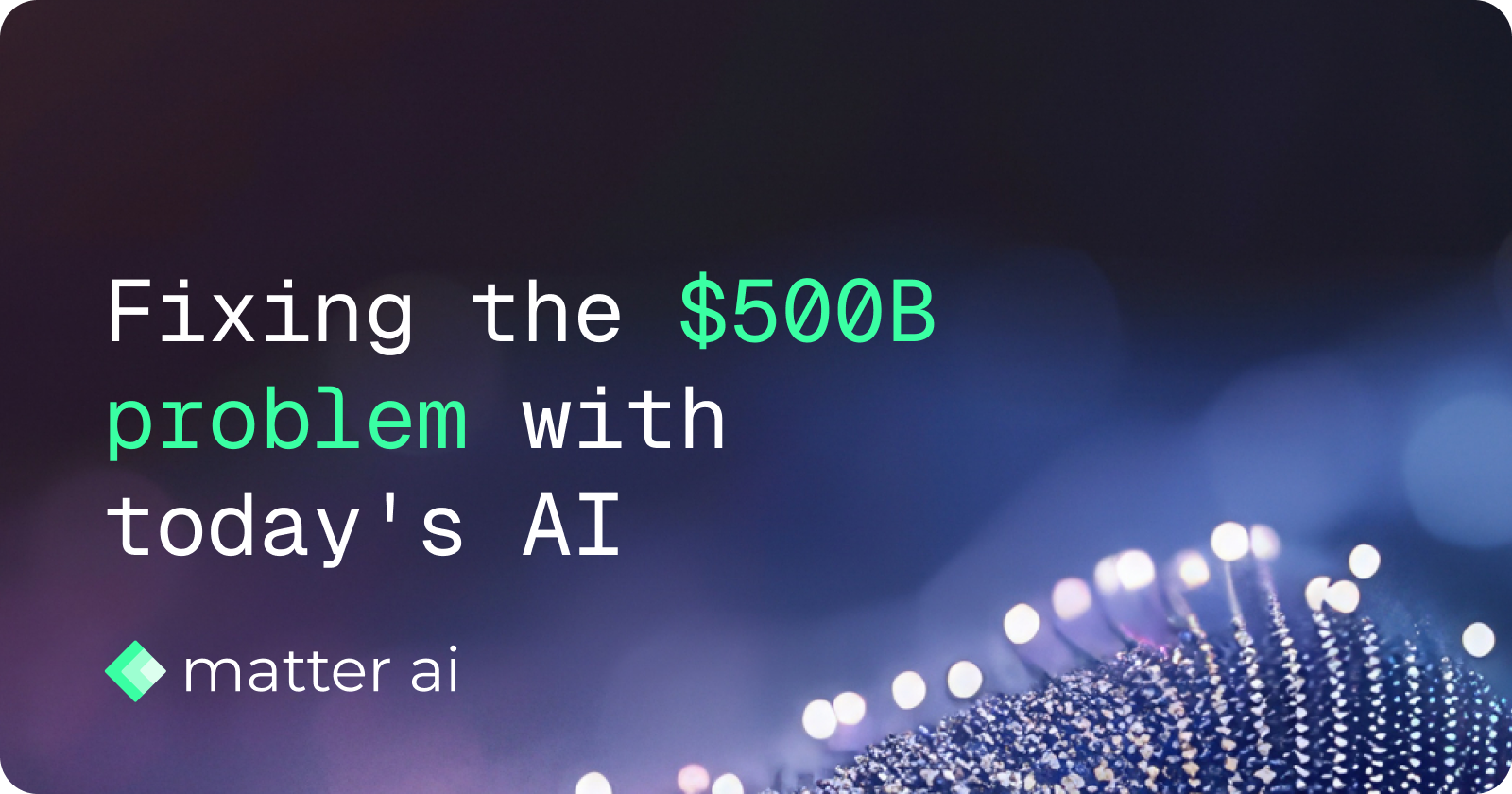
Fixing the $500B problem with today's AI
The key challenges that AI presents today and how we at MatterAI are working on fix them.
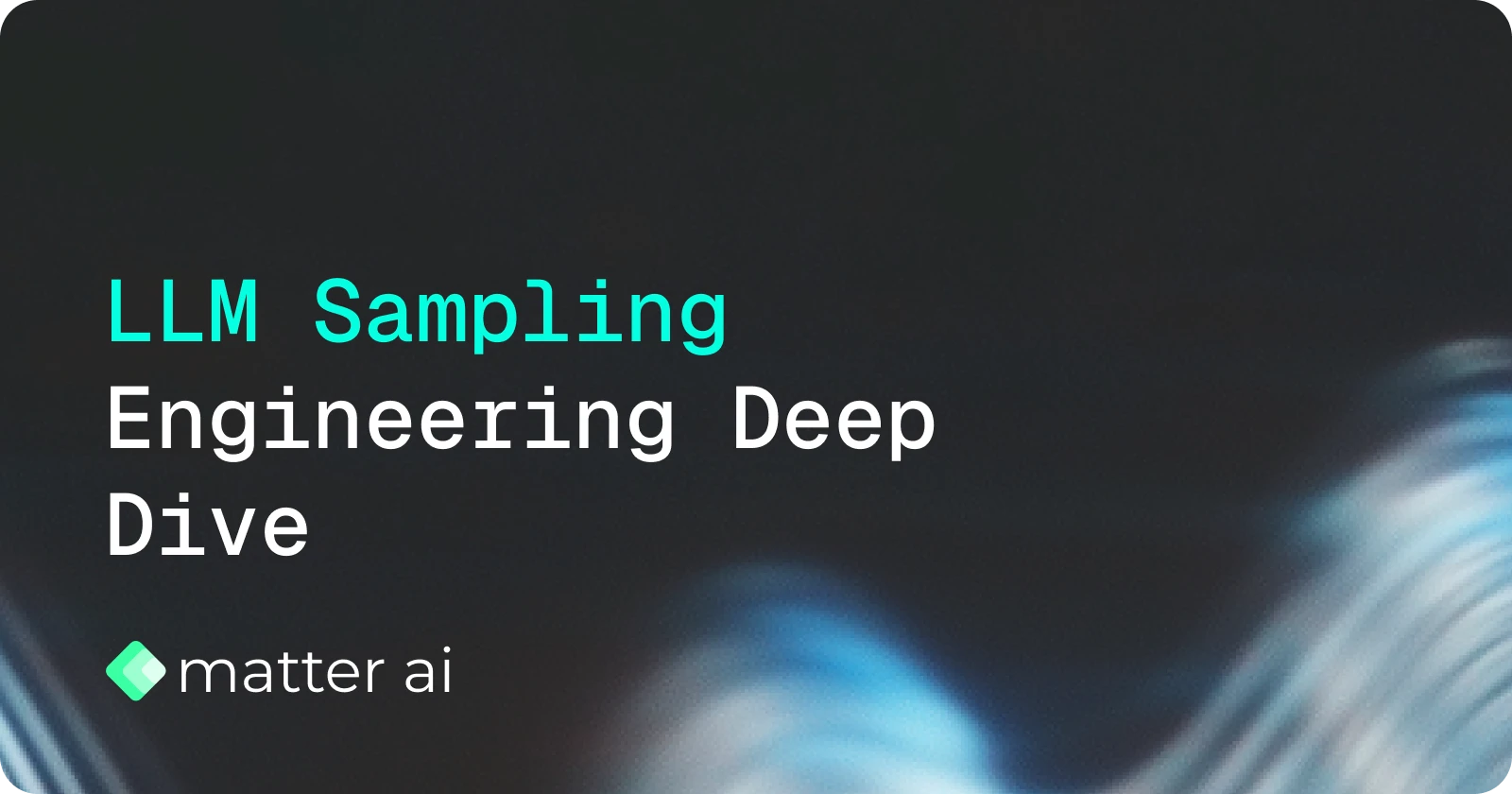
LLM Sampling: Engineering Deep Dive
How to tune LLMs to work for you with samplings
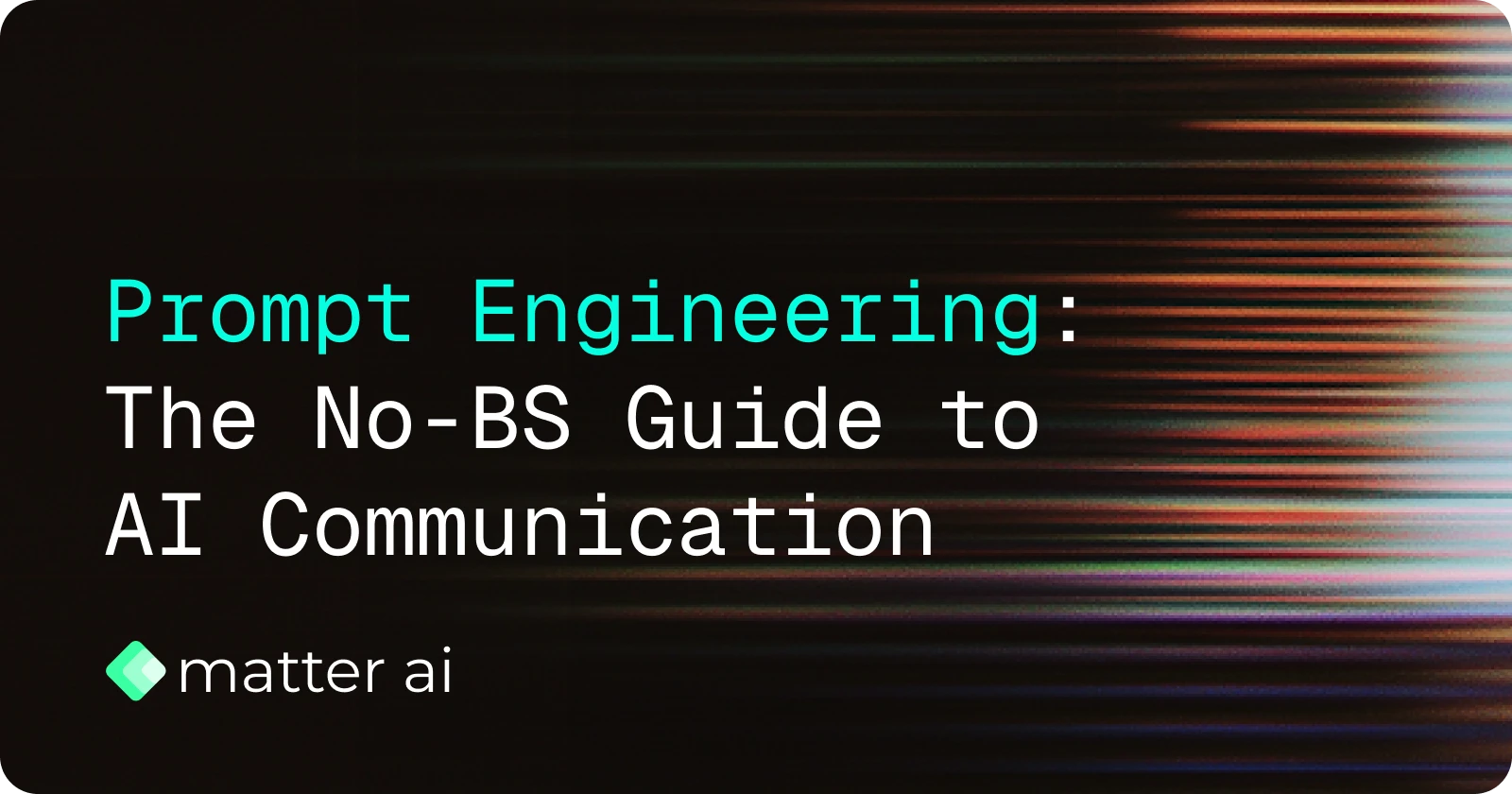
Prompt Engineering: The No-BS Guide to AI Communication
Understand, structure and implement prompts that gets you the best, consistant and reduced hallucination outputs.
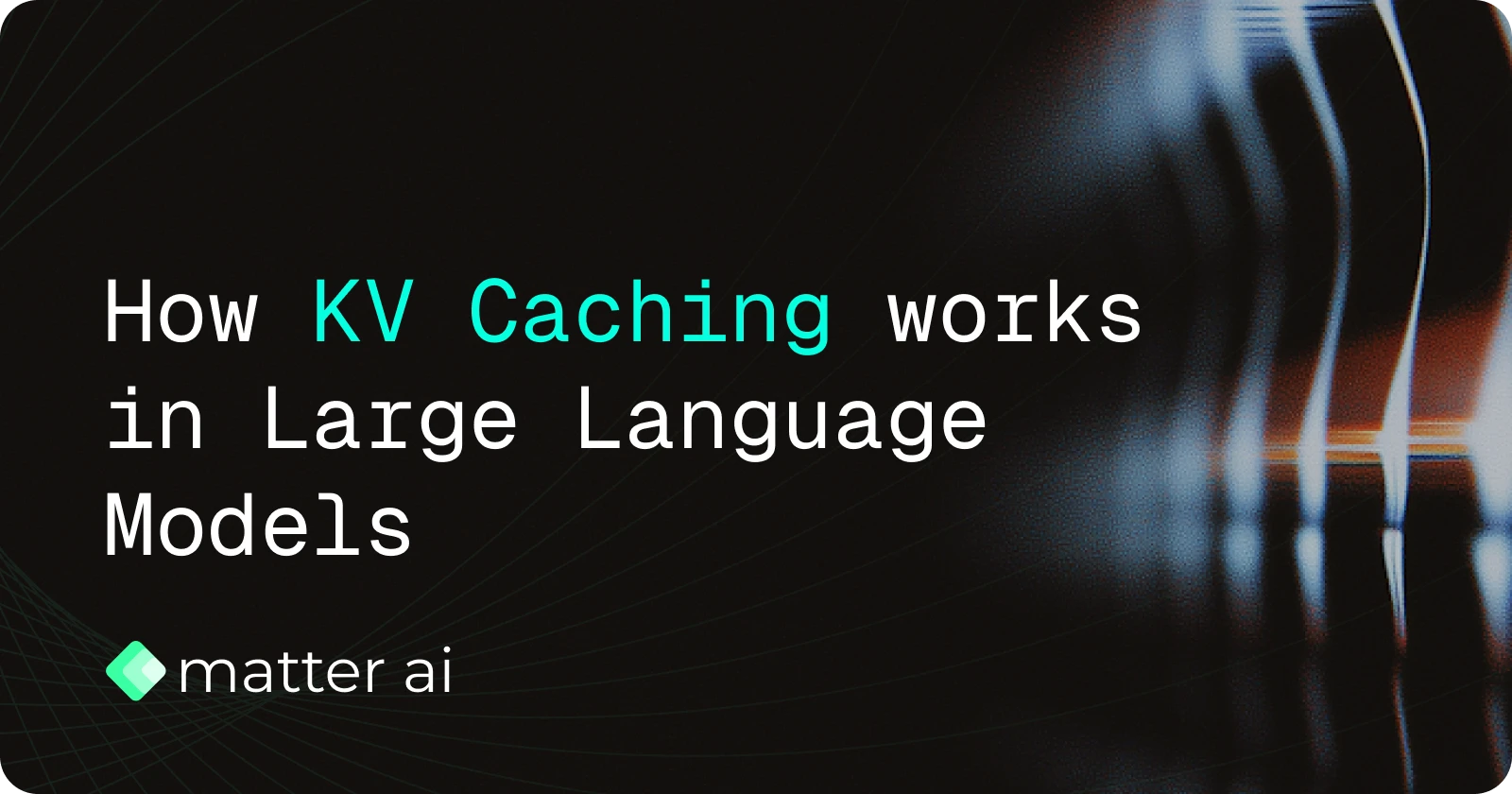
How KV Caching Works in Large Language Models
KV caching is the optimization that solves this problem, making LLMs faster and more efficient
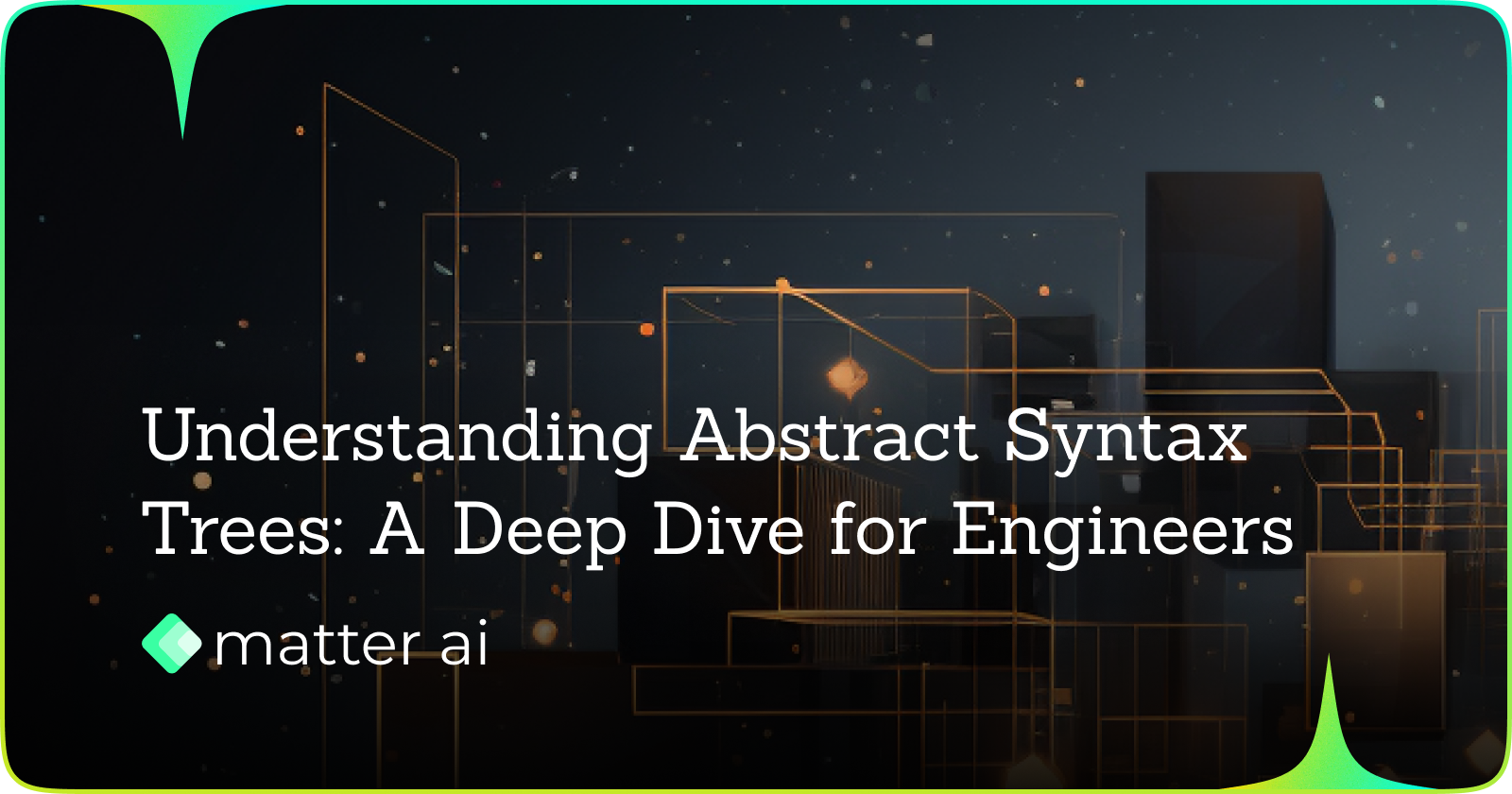
Understanding Abstract Syntax Trees
How compilers understand your code, how linters spot bugs or how tools like Prettier can reformat thousands of lines of code in milliseconds
Continue Reading

Fixing the $500B problem with today's AI
The key challenges that AI presents today and how we at MatterAI are working on fix them.

LLM Sampling: Engineering Deep Dive
How to tune LLMs to work for you with samplings

Prompt Engineering: The No-BS Guide to AI Communication
Understand, structure and implement prompts that gets you the best, consistant and reduced hallucination outputs.
